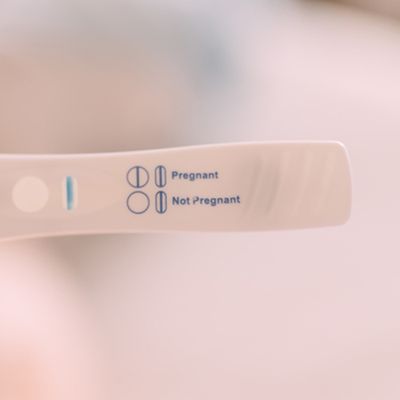
Everything You Need To Know About Sperm Donation
UPDATED JANUARY 2020
Most people take the process of having children for granted. It’s seen as very natural and relatively simple, until women discover they may not be able to conceive children after all. And even for those who don’t have any difficulty in conceiving, the average chances of conceiving are only about 20-25% per cycle – which is roughly the same rate of success in using assisted conception techniques. In fact, it’s estimated one in seven couples will have fertility problems at some stage in their lives.
There can be many reasons why some couples fail to achieve a pregnancy. The male partner may have sperm abnormalities, poor sperm production or no sperm at all. Some men carry inherited genetic diseases, so opt to use donated sperm so they don’t transmit the disease to their children. Some women want to have a child alone or are in a lesbian relationship. Whatever the circumstances, sperm donors can change lives and make families a reality.
There’s actually a shortage of sperm donors in the UK. As women wait until they are older to have children, and the circumstances of starting a family change, sperm donation is becoming a more popular option. This means many people will have to wait for donated sperm, although some couples are fortunate enough to have friends and family willing to donate sperm as a ‘known donor’. Others will have to join a queue and could wait up to a year for sufficient donors to volunteer to donate their sperm. To meet the current demand, it’s estimated over 500 sperm donors are needed every year – from all nationalities, religions, ethnicities and cultures. UK fertility clinics are also able to import sperm from overseas, but only under certain conditions.
Choosing an anonymous or known donor is a personal choice. The most important thing is that donor procedures are carried out and that only healthy, safe sperm is used to conceive any child you might have.
Sperms donors are not named on the birth certificate. The person or couple who received the donation will be the child’s legal and social parent(s), including your partner, even if they haven’t contributed biologically. The donor has no legal, financial or social obligations to any child created, either now or in 18 years’ time.
But there is a way to find out details about the donor. Donors are asked to complete a form to fill out personal details which can be handed to the donor-conceived person once they turn 18 or older. This information enables the child’s parents to talk to them about their origins as they grow up and helps them build a mental picture of the donor, but they cannot meet them. It’s important to remember that as along as you’ve gone through a licensed fertility clinic in the UK, your donor will have no legal rights or responsibilities to any children born with their sperm, eggs or embryos.
It’s possible to choose your donor via a fertility clinic. If you use a donor through a fertility clinic you can generally find out their height, weight, eye and hair colour, the year and country of birth, their ethnicity, whether they had any children at the time of donation, including how many and the gender, and even their marital status and medical history. They may choose to write a message at the time of their donation, but you won’t be able to find out any information that completely reveals their identity.
The insemination procedure is relatively painless and only takes a few minutes. But there is a bit more work to do before reaching this stage. An initial semen analysis will be performed to ensure the donor’s sperm is of suitable quality and an appointment with a nurse or patient coordinator is carried out to complete paperwork indicating consent to donation. Male donors are also asked to abstain from sex and masturbation for two or three days before donating a sample. Depending on the quality, the laboratory staff will advise how many times they would like the donor to donate. It may be up to two or three times a week for anywhere up to four months. Finally, the sample is passed to the laboratory staff for processing and storage, prior to insemination.
Insemination can take place even if you’re on other fertility drugs. When fertility treatment involves directly inserting sperm into a woman's womb, it is called intrauterine insemination (IUI). The donor sperm is prepared in the laboratory to separate fast moving sperm from more sluggish or non-moving sperm and is washed in the laboratory to concentrate the best sperm into a small amount of fluid. Using a catheter, your doctor will place the concentrated sperm directly into your uterus through your cervix, under ultrasound guidance. Some women may experience temporary, menstrual-like cramping, but usually all normal activities can be resumed after the insemination.
Artificial insemination is available on the NHS. However, the waiting list for treatment can be very long in some areas and there are strict rules, so ensure you speak to your GP about your situation. If you opt to go down the private route, prices for IUI start at £1,100 per cycle. The procedure can be done abroad, too, but it’s usually advisable to remain in the UK to ensure everything is done to the highest health and safety standards.
The success rate with IUI treatment depends on many things. These can include factors such as your partner’s fertility status or your age. Most couples who opt to undergo IUI have a 5% to 20% chance of becoming pregnant with each attempt. The chances are higher for stimulated IUI cycles in younger women using good quality sperm. However, it is not uncommon for multiple IUI cycles to be attempted due the poor success rate with a single cycle.
Make sure to think about why you want to be a parent before embarking on the process. For both donors and people who want to be parents, it is important to really think about this step. We know people want to have children, but consider all options. Look at your health and lifestyle, speak to close family and friends and also professionals. Women should also have the patency of their fallopian tubes checked (to see whether or not their fallopian tubes are open). This can be performed via the HyCoSy investigation, which uses a special, sono-contrast dye under ultrasound visualisation.
Dr Geetha Venkat is a resident specialist at the Harley Street Fertility Clinic.
DISCLAIMER: We endeavour to always credit the correct original source of every image we use. If you think a credit may be incorrect, please contact us at info@sheerluxe.com.























